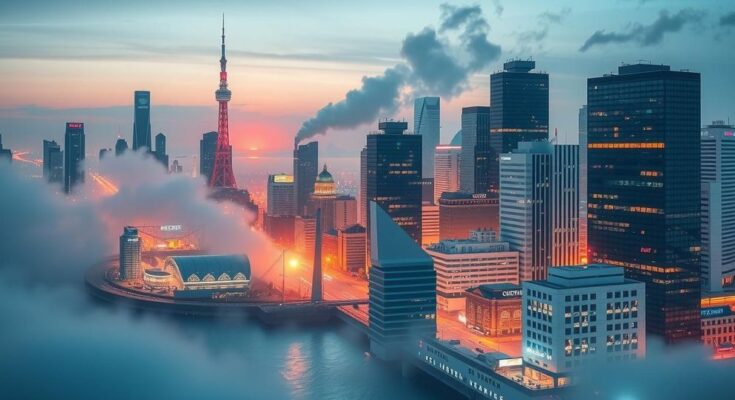Recent research reveals that while global warming is accelerating, densely populated megacities with high pollution levels are warming more slowly due to aerosol particles. This temporary cooling effect may place vulnerable populations at greater risk as pollution control measures are implemented. As nations strive to meet climate goals, the need for targeted adaptation strategies becomes crucial.
The discourse surrounding the acceleration of global warming remains contentious among climate scientists. While some affirm the correlation between the current rate of warming and increased fossil fuel emissions, others caution that the Earth’s sensitivity to these emissions is greater than previously understood. A recent study conducted by researchers at the University of Melbourne has revealed that while global temperatures are rising at an accelerated pace, this increase is not uniform. Notably, megacities with high pollution levels, such as Cairo and Mumbai, are experiencing slower warming rates compared to urban centers in Europe and North America. This phenomenon is attributed to the significant presence of aerosol particles in these polluted environments, which reflect sunlight and exert a temporary cooling effect.
However, experts warn that this cooling effect is misleading and offers little to celebrate. Edith de Guzman, an adaptation policy specialist, noted the duality of this situation, suggesting that as societies progress in economic terms, they improve pollution controls, potentially exposing vulnerable populations to extreme heat. This predicament particularly affects those in regions currently shielded by high pollution levels. Christopher Schwalm, Risk Program Director at the Woodwell Climate Research Center, highlighted the example of China, where emissions reduction technologies are improving air quality but simultaneously allowing increased solar heat absorption. He stated, “The poorer you are, the hotter it gets, where heat is a metaphor for all forms of climate disruption.”
The findings from Melbourne’s research serve as critical guidance for developing targeted climate adaptation strategies for impoverished urban communities. The scientific community possesses several advanced climate models that can aid nations in understanding the implications and expectations surrounding accelerated warming. The urgency of this issue is underscored by the global failure to meet emission targets outlined in the 2015 Paris Agreement, raising alarms over the likely surpassing of the 1.5 degrees Celsius increase metric, underscoring the necessity for immediate action.
The article addresses a significant concern regarding global warming: its uneven acceleration across different regions of the world. It highlights recent research from the University of Melbourne that identifies megacities, particularly those with severe pollution, as experiencing slower warming rates than more developed urban areas. This raises important discussions about the interplay between industrial development, pollution control, and the vulnerability of marginalized populations to climate change and extreme weather events.
In summary, while the general trend suggests an increase in global temperatures, densely populated cities plagued by pollution may currently benefit from a temporary cooling effect. However, this situation is expected to change as environmental policies improve air quality, inadvertently exposing vulnerable populations to greater heat dangers. The urgency to adapt and plan for these changes is critical as nations confront the reality of climate change’s unpredictable trajectory. Collaboration on effective climate adaptation initiatives targeting impoverished communities is essential for bolstering resilience against impending environmental challenges.
Original Source: www.nationalobserver.com




